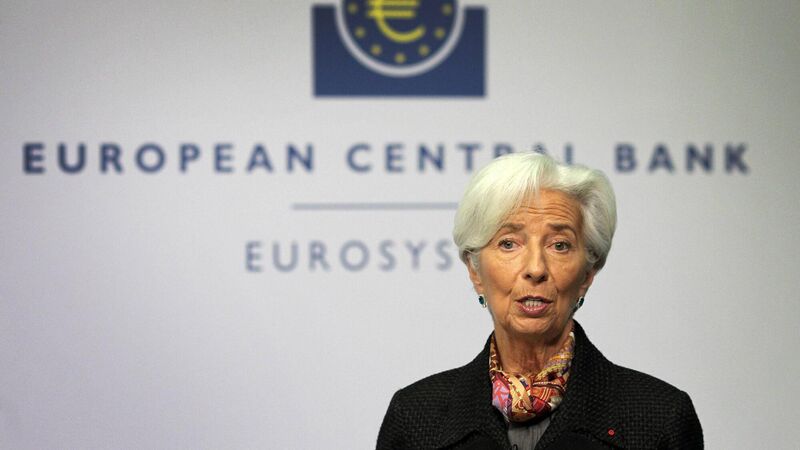Oliver Mangan: Amid the worst pandemic for 100 years, global stocks are up 10%

Official interest rates are either very close to zero or negative in the main economies, with central banks, including the ECB run by Christine Lagarde, also engaging in enormous bond purchase programmes. File photo: Daniel Roland/AFP
This year was always going to be challenging for investors following the stellar performance across virtually all asset classes in 2019 that yielded very handsome returns.
And then 2020 has witnessed the biggest global pandemic in a century and the deepest global recession since the Great Depression and you would have been very fearful about the performance of nearly all financial assets.















